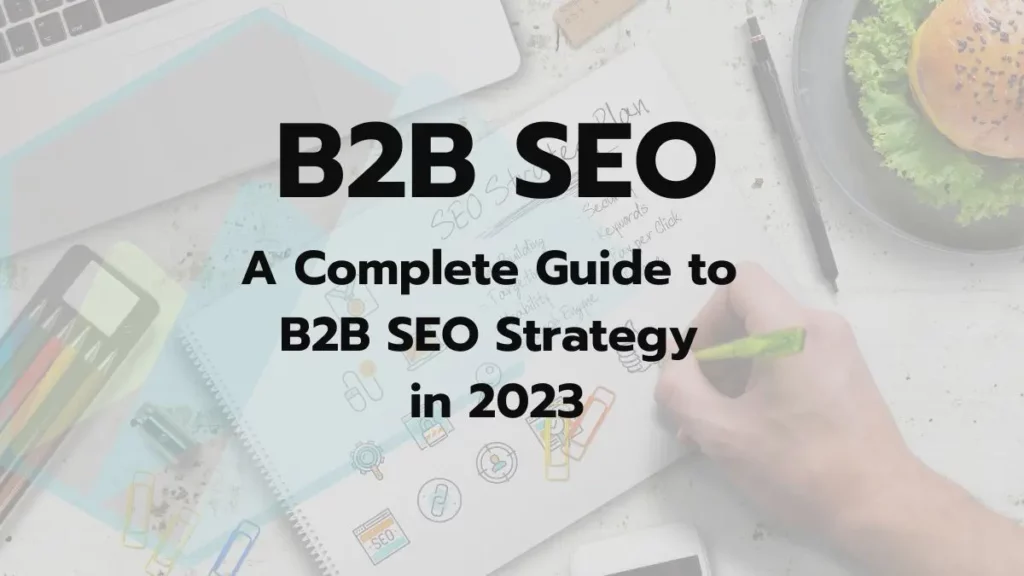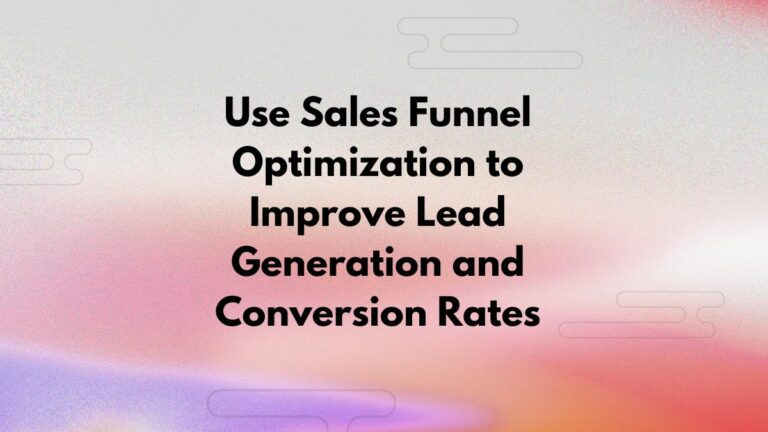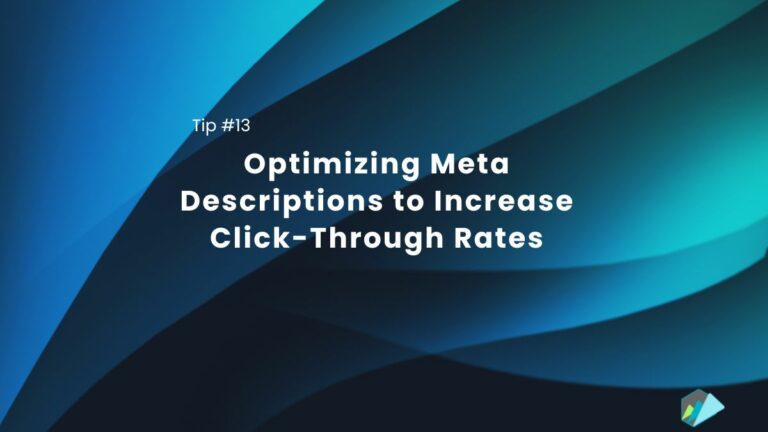
B2B SEO
A Complete Guide to B2B SEO Strategy in 2023
For B2B companies, SEO is a crucial component of digital marketing. The process of B2B SEO includes optimizing a website to achieve higher rankings in search engine results pages (SERPs) for keywords pertinent to the business’s offerings. A successful B2B SEO strategy can drive qualified leads and revenue for a business, making it a crucial part of any B2B marketing plan.
This guide will take a comprehensive look at B2B search engine optimization, including what it is, the basics of how to do it, and some advanced strategies for scaling your B2B SEO efforts in 2023. We’ll also discuss the role of a B2B SEO agency and how they can help with your SEO campaigns.
What is B2B SEO?
B2B SEO is a complex process that requires both technical and creative thinking. It involves choosing the right keywords and building high-quality content for those keywords relevant to the products or services that your B2B company offers. It is a strategy focused on targeting other businesses as customers, and it’s different from B2C SEO, which is focused on targeting individuals.
B2B companies can also use paid advertising platforms like Google Ads to promote their website. While it may seem like a lot of work, it’s worth noting that B2B companies typically experience higher conversion rates than B2C businesses since they are more likely to have pre-existing relationships with their customers.

SEO for B2B Basics
The basics of B2B SEO include keyword research, on-page optimization, and content marketing. Keyword research is the process of identifying the search queries that potential customers are using to find products or services like yours. By understanding the keywords your target audience is searching for, you can optimize your website to rank higher in search results.
On-page optimization refers to optimizing individual web pages to rank higher in search results. On-page optimizations include optimizing page titles, meta descriptions, and header tags, as well as ensuring that the content on your pages is relevant to the keywords you’re targeting.
Content marketing is also a key part of any B2B SEO strategy. Providing valuable information to your target audience about a relevant topic and creating high-quality blog posts and landing pages optimized for SEO are important factors in increasing online visibility. Content marketing can attract organic traffic to your website, which is crucial for driving leads and revenue.
8 Ways to Scale Your B2B SEO Strategy
As you begin to see results from your B2B SEO efforts, you may want to scale your strategy to drive even more traffic and leads to your website.
#1 Keyword Research and Targeting
One of the most important steps in scaling a B2B SEO strategy is conducting thorough keyword research. This will help you identify the specific phrases and terms your target audience is searching for and tailor your content and website accordingly. You can increase your visibility in search engine results by targeting the right keywords and driving more qualified traffic to your site.
When conducting keyword research, it’s important to consider the intent behind each search query. For example, someone searching for “B2B SEO services” may be looking for a company to hire, while someone searching for “B2B SEO best practices” may be looking for educational content. By understanding the intent behind each query, you can create content that more effectively addresses the needs of your target audience.
Another important aspect of keyword research is tracking your progress over time. By monitoring your targeted keywords’ search volume and performance, you can see which ones are driving the most traffic and conversions and adjust your strategy accordingly.

#2 Content Optimization and Promotion
Once you have identified your target keywords, the next step is to optimize your existing content and create new content that targets those keywords. This includes not only the text on your website but also images, videos, and other media. By ensuring that your content is optimized for search engines, you can increase your visibility and drive more traffic to your site.
In addition to optimizing your existing content, it’s also important to create new, high-quality content is also important. As a thought leader in your industry, you can attract more qualified leads to your business by providing valuable information through blog posts, ebooks, whitepapers, and case studies.
Once you have created your content, it’s important to promote it through various channels, such as social media, email marketing, and industry publications, to help to increase visibility and drive traffic to your site.
#3 Technical SEO Optimization
In addition to optimizing your content, it’s also important to optimize the technical aspects of your website for SEO, including things like website structure, URLs, and meta tags. By ensuring that your website is technically optimized, you can make it easier for search engines to crawl and index your site, which can help to improve your visibility in search results.
One of the most important technical SEO factors is website structure, such as how your pages are linked together and how your website is organized. By creating a clear and logical structure, you can make it easier for search engines to understand the content on your site and how it’s related to other pages.
Another important technical SEO factor is website speed. A faster website will be more likely to rank well in search results and provide a better user experience. You can improve website speed by optimizing images, minifying code, and using a content delivery network (CDN).


#4 Link Building
Link building is the process of acquiring links from other websites to your own. These links act as “votes” for your website, indicating to search engines that other sites consider your content valuable and relevant. The more high-quality links you have pointing to your site, the more likely your website will rank well in search results.
One effective way to build links is through guest blogging. One way to increase traffic to your site is to write articles for other sites in your industry and have these articles link back to your site, which helps establish you as an expert in your field.
Creating shareable content, such as infographics, that other websites will want to link to is a great way to get natural, high-quality links.
Link building can also be achieved by reaching out to other websites and asking for a link, which can be done by reaching out to other website owners, bloggers, or influencers in your industry and asking them to link to your content. It is important to ensure that the website you are reaching out to is relevant to your industry and has a good reputation.
#5 Local SEO Optimization
Local SEO is important for B2B businesses with a physical location. It will help you reach potential customers searching for businesses similar to yours in the area.
One way to optimize for local SEO is to ensure your business is listed correctly on popular local directories, such as Google My Business, Yelp, and Yellow Pages. One way to make it easier for customers to find you is by providing important information about your business, such as your address, phone number, and hours of operation.
Another way to optimize for local SEO is to ensure that your website includes location-specific keywords and phrases. Search engines such as Google use geographic data to understand what your business offers and where it is located. The more they know, the higher you will rank in local search results.
#6 Analytics and Reporting
Analytics and reporting are essential for scaling your B2B SEO strategy. By tracking the performance of your website, you can identify areas that need improvement and make data-driven decisions.
One important analytics tool is Google Analytics. It allows you to track website traffic, bounce rates, and other important metrics. By monitoring these metrics, you can see how your SEO efforts impact your website’s performance and make adjustments as needed.
Another important analytics tool is Google Search Console. It allows you to see how your website performs in search results, including which keywords drive the most traffic and which pages are getting the most impressions. This information can help you identify which pages are working well and which need improvement.


#7 Tracking and Optimizing for Conversions
While driving traffic to your website is important, ultimately, the goal of B2B SEO is to generate leads and conversions. To achieve this goal, it’s important to track and optimize for conversions.
One way to do this is to set up conversion tracking in Google Analytics. Tracking your landing pages in Google Analytics will allow you to see which pages on your site drive the most conversions and where potential customers are dropping off in the conversion process. By identifying these areas, you can make adjustments that lead to an improvement in your conversion rate.
Another way to optimize for conversions is to test different elements on your website, such as headlines, images, and calls to action. A/B testing can help you to identify which elements are the most effective at driving conversions and make data-driven decisions to improve the overall conversion rate.
#8 Personalization and Targeting
Personalization and targeting can be effective strategies for scaling your B2B SEO efforts. By tailoring your content and website to specific segments of your target audience, you can improve the relevance and effectiveness of your SEO efforts.
One way to personalize your SEO efforts is to segment your audience based on demographics, such as industry, company size, or location. By understanding each segment’s specific needs and pain points, you can create content and campaigns that are more likely to resonate with them.
Another way to personalize your SEO efforts is to use dynamic content. Displaying different content on a website to other users based on their behavior, such as what pages they’ve visited or which products they’ve viewed, can help improve the relevance of your SEO efforts and increase the chances of converting leads.

Our Expert B2B SEO Content Team
At Digital Results, we understand the importance of B2B SEO, which is why we have a team of experts who specialize in creating SEO-optimized B2B content. Our team of content marketers is experienced in producing high-quality blog posts, landing pages, and other types of content designed to attract organic traffic to your website.
We also have technical SEO experience, including optimizing your website’s code and structure for better visibility in search results. We can help you build a strong foundation for your B2B SEO strategy, which will help your company attract qualified leads and increase sales. We’ll work with you to develop a content marketing plan tailored to your business needs, goals, and budget.
B2B SEO Strategies Tailored to Your Target Audience
We understand that every B2B company is different, which is why we tailor our SEO strategies to the specific needs of each of our clients. In order to attract and convert potential customers, it is essential to research the keywords and phrases your target audience is searching for.
We also consider your sales funnel and the specific products or services you offer to optimize your website for the keywords that will drive the most qualified leads and revenue for your business.
Enterprise B2B SEO
For larger B2B companies, enterprise SEO, is an essential aspect of their digital marketing strategy. Enterprise SEO is a more complex and comprehensive strategy that involves optimizing a large website with thousands of pages. Optimizing site architecture, implementing a content management system, and creating a comprehensive content strategy are just some of the things that can help you enhance your site’s performance.
At Digital Results, we have experience working with Fortune 500 companies and enterprise B2B companies and can help develop an SEO strategy focused on your business’s specific needs. The goal of enterprise SEO is the same as any other form of B2B SEO: to drive qualified leads and increase revenue. Optimizing your site for search engines can help potential customers find your business more efficiently and convert them into paying customers.

Drive Qualified B2B Leads and Revenue
At the end of the day, the goal of B2B SEO is to drive qualified leads and revenue for your business. By implementing a comprehensive B2B SEO strategy that includes keyword research, on-page optimization, content marketing, link building, and local SEO, you can increase the visibility of your website in search results and attract more organic traffic to your website. In turn, this can drive more qualified leads and revenue for your business.
Don’t Forget
It’s also important to note that SEO is not a one-time task but rather an ongoing process that requires consistent effort and monitoring. To succeed in B2B search engine optimization, you must stay on top of the latest search trends, produce high-quality content consistently, and monitor your site’s performance in search results.
It’s essential to track and measure the success of your B2B SEO efforts. Organic traffic, search engine rankings, and the performance of specific pages or campaigns are all data points that can help you to identify areas for improvement and make data-driven decisions about your SEO strategy.
B2B SEO is a critical component of digital marketing for any B2B company. By understanding the basics of B2B SEO and implementing advanced strategies, you can increase the visibility of your website in search results, drive more qualified leads and revenue for your business, and stay ahead of the competition in 2023. However, it is vital to note that SEO is a continuous process that requires consistent effort and monitoring, and it is always crucial to hire the best B2B SEO agency to help you achieve your goals.
Ready to Grow Your Search Engine Results?
Let Digital Results assist you in your SEO strategy and help
deliver the search engine results you need.






